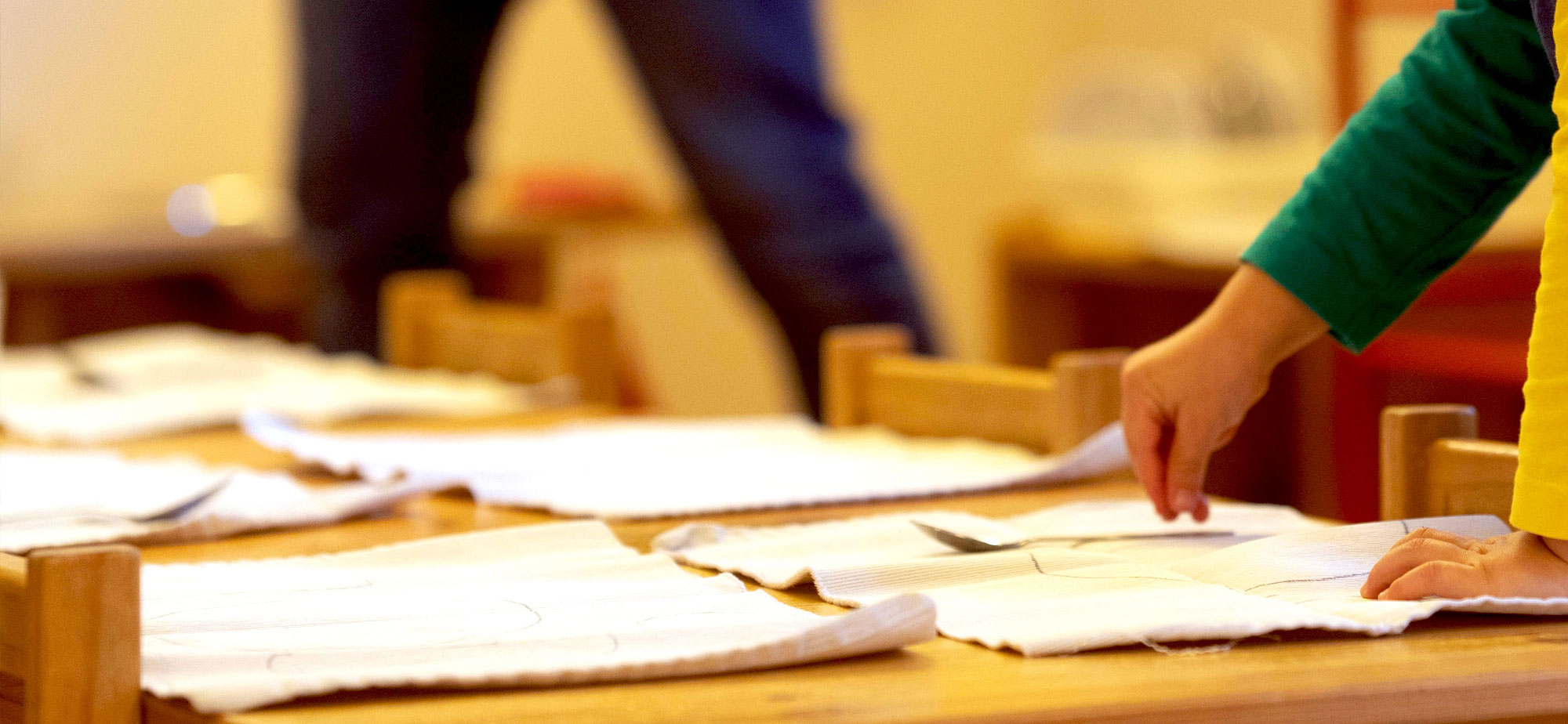
infant community 1-3
introduction
Between 18 months and 3 years of age, children are reaching and surpassing extraordinary developmental milestones: they are learning to walk safely, communicate through spoken language, and begin to care for themselves. At this stage, their brains are developing very rapidly, and the experiences they have are crucial to the formation of their character and personality.
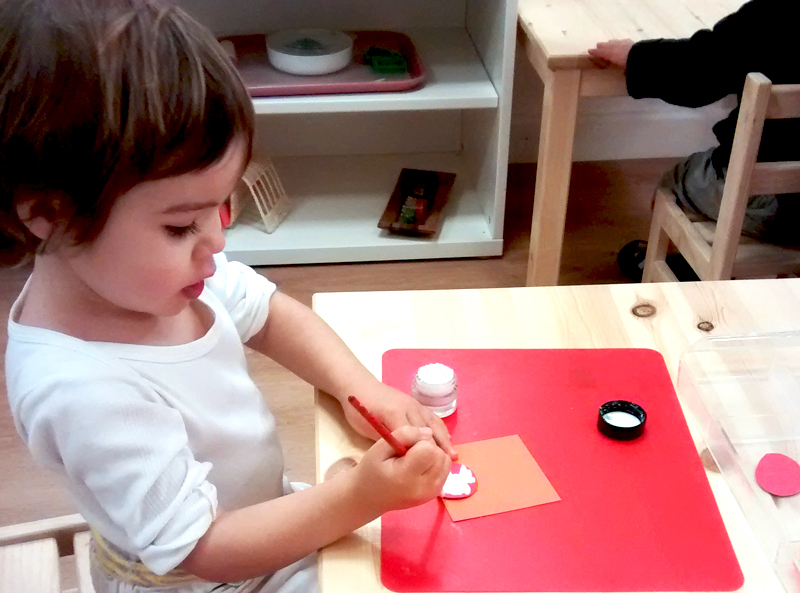
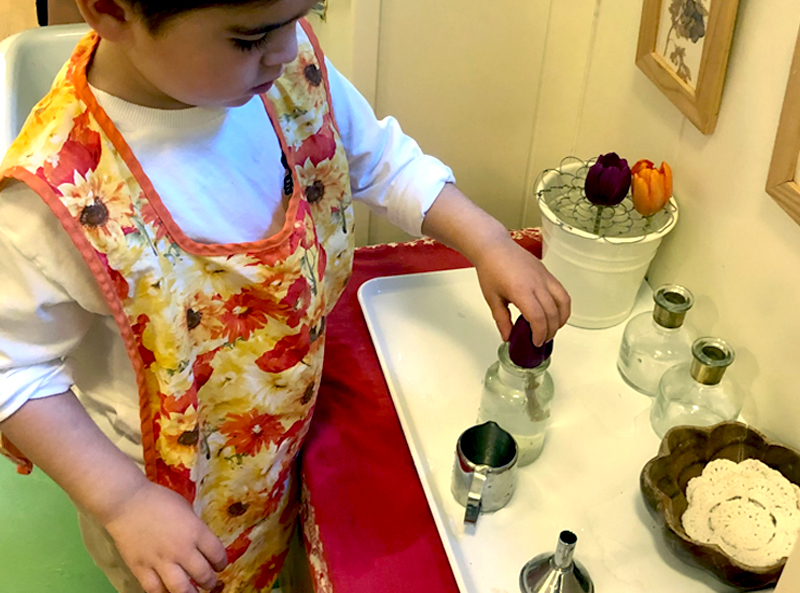
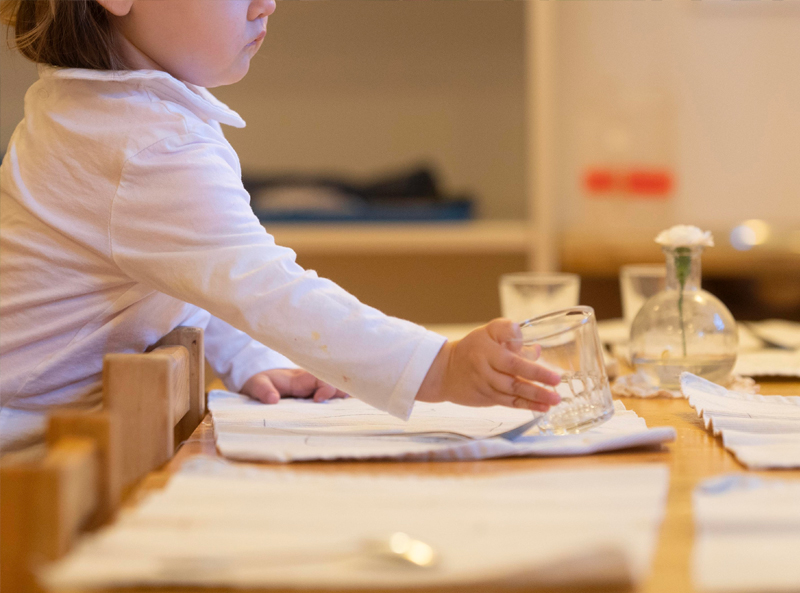
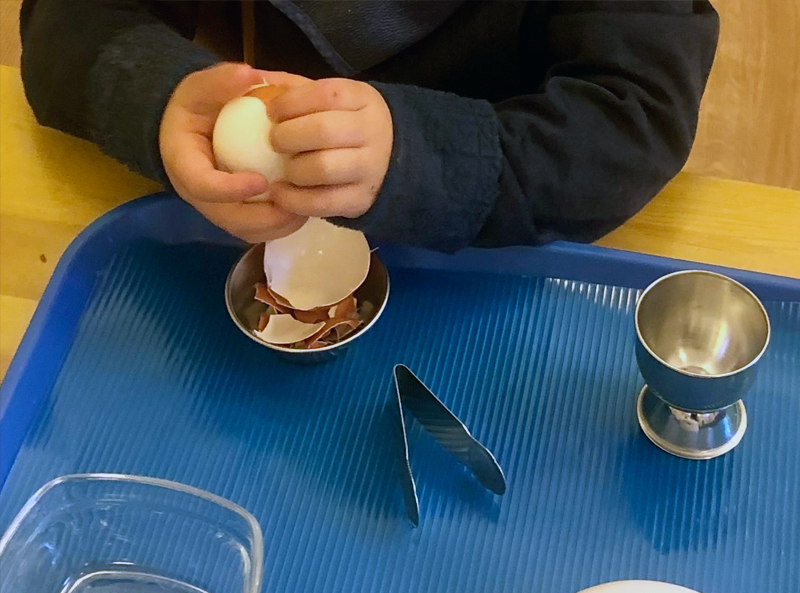
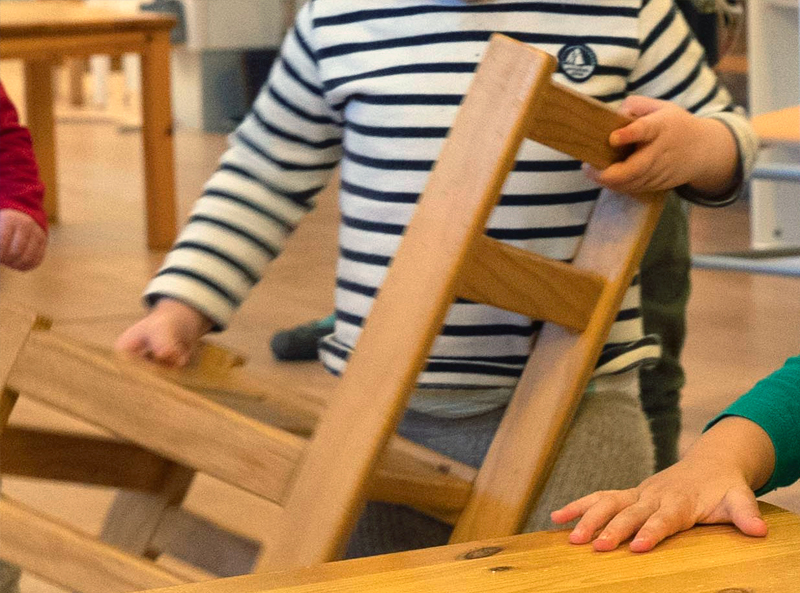
the environment provides opportunities
The Infant Community offers a space with multiple opportunities for physical movement and exploration, in an environment rich in opportunities for verbal interaction with peers. This allows them to develop their autonomy and self-esteem, as well as establish relationships with other children in an environment of warmth and mutual respect.
The environment provides opportunities to participate in activities that can be enjoyable individually or in groups, such as setting the table, washing dishes, arranging flowers, or caring for plants. These tasks develop children’s will and commitment, crucial aspects in building their character. By participating in them, children exercise their manipulation and fine motor skills, while strengthening their self-esteem with the satisfaction of doing things themselves.
The Infant Community is a bilingual environment, with two adults who each speak their native language: one in Spanish and one in English.
help me do it by myself
Children ask us to: “Help me do it myself.” It’s wonderful to support them in that process, in an environment where adults are prepared to guide them. One way to accompany them is to design activities that they can initiate and complete independently. In this way, children become familiar with their own abilities and develop self-confidence in a short, intense period of time.
In this stimulating and nurturing environment, children can have positive experiences from their first experiences outside the home and, by developing their budding social skills, create bonds beyond their family. We accompany them in this natural process of human development: the gradual opening and connection to the world, building emotional bonds with people outside of their family.
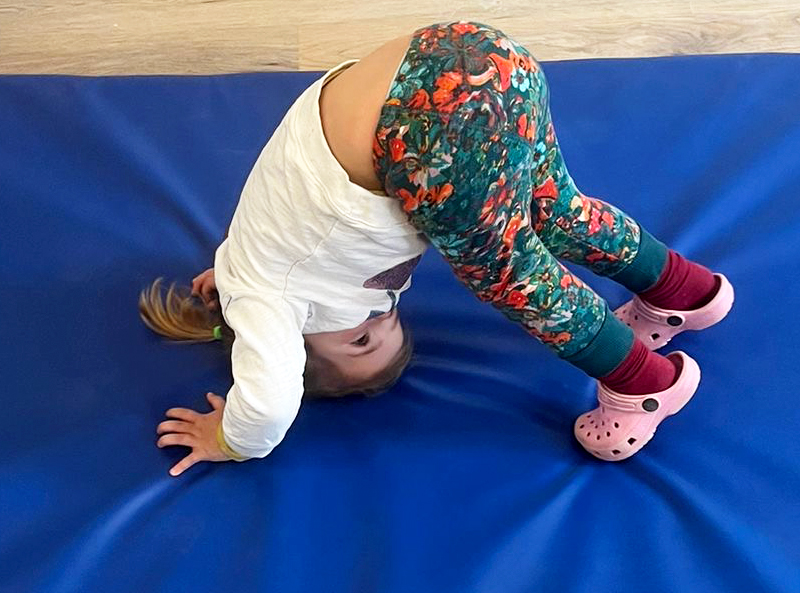
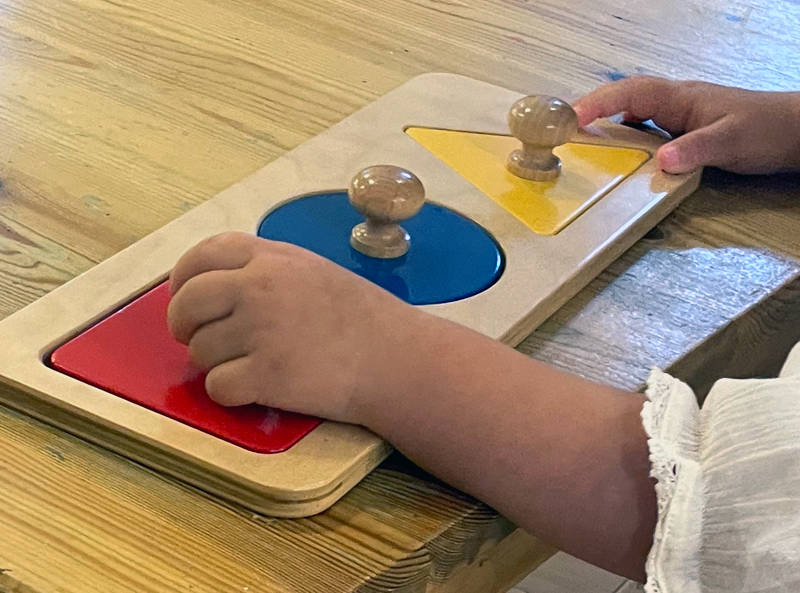
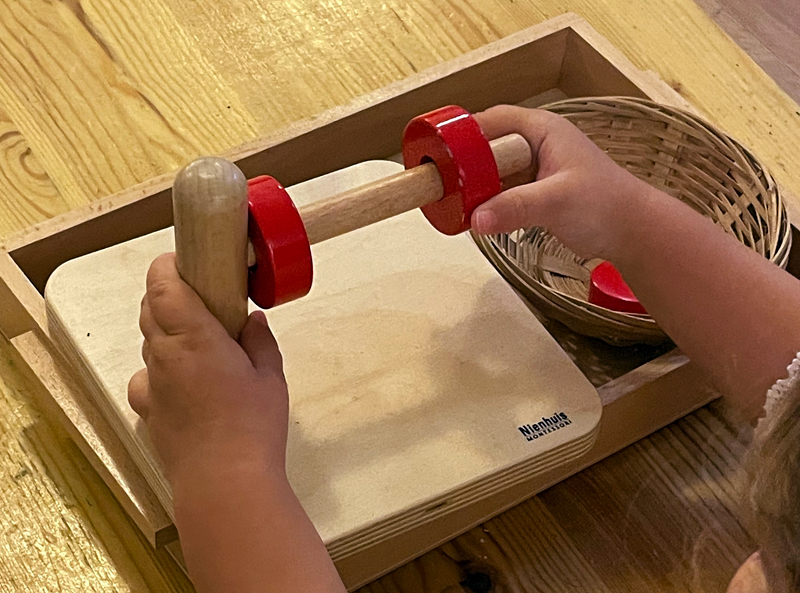
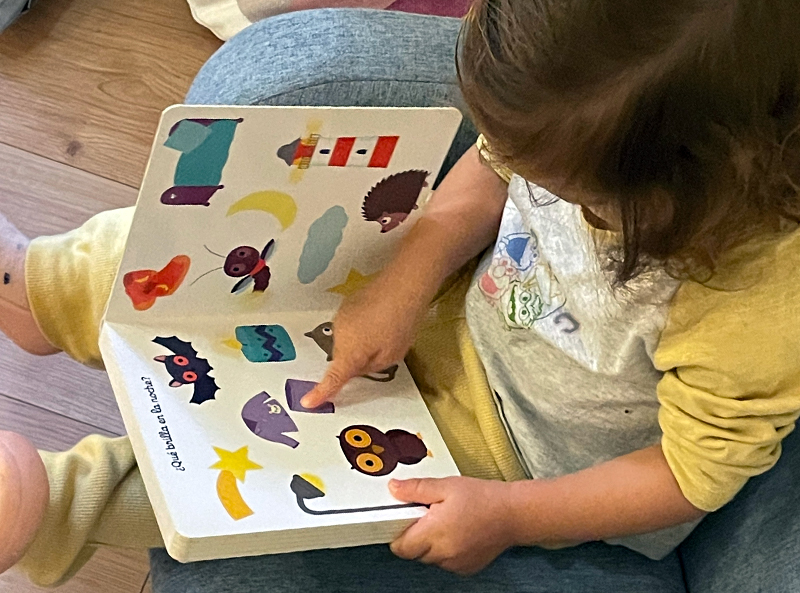
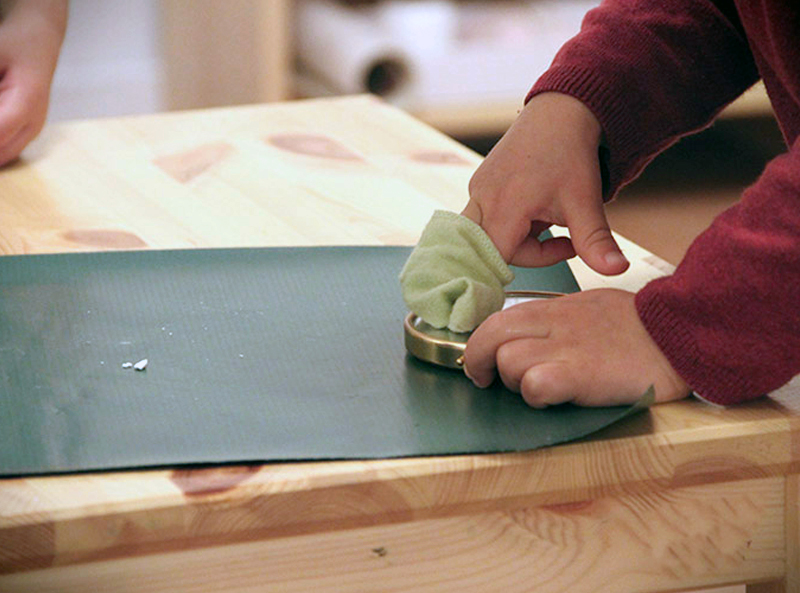
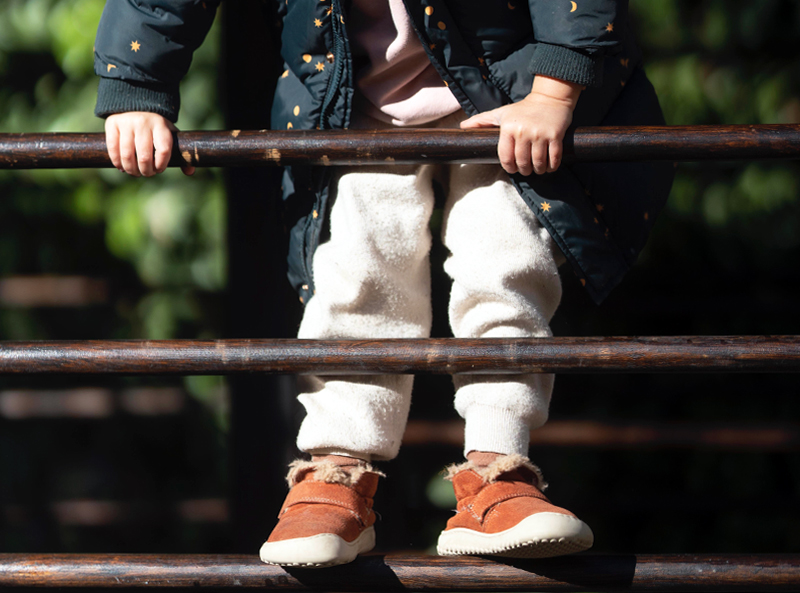
All the activities available to the children are appropriate for their developmental stage and specially designed to meet their physical, emotional, and intellectual needs. The adults who accompany them have been trained with special attention to respecting each child’s pace and temperament, assisting them in their individual learning.
It is important to note that this is not a traditional daycare center. One of the biggest differences is that the children’s needs are prioritized over those of the adults. This is evident in the classroom environment but also in the schedule: from 8:45 a.m. to 1:00 p.m., Monday through Friday. Within this structure, children are able to choose the activities they will do during the morning, always at their own pace and according to their particular interests.
In this way, the Infant Community follows the theory of human development from birth to 36 months outlined by Maria Montessori. A core aspect of this is that children’s needs must be met taking into account their stage of development.
a day in the infant community...
Children arrive between 8:45 and 9:00 and are greeted individually by the Guides. After saying goodbye to their parents or caregivers, they go inside to change their shoes and hang up their coats.
Many children choose to start the morning by gathering in groups to sing songs and greet arriving classmates; others prefer to choose an activity using materials from the shelves, painting, or looking at a book.
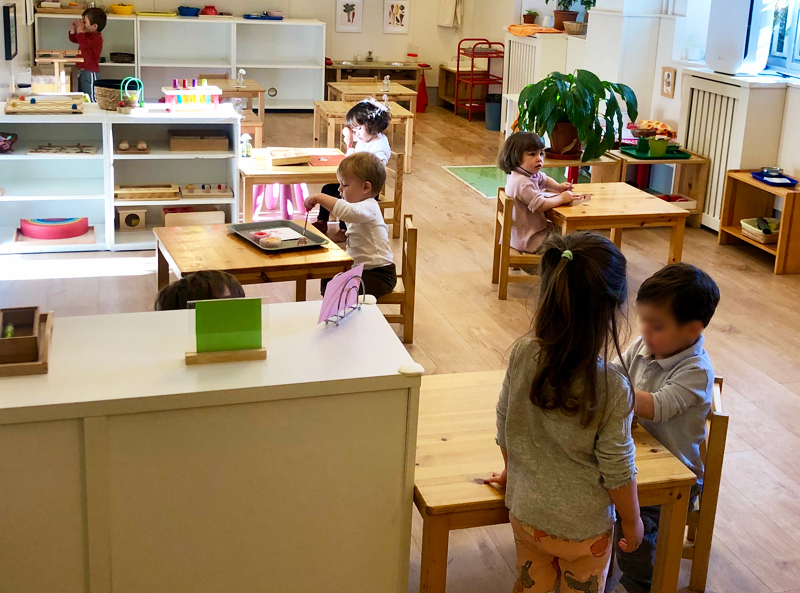
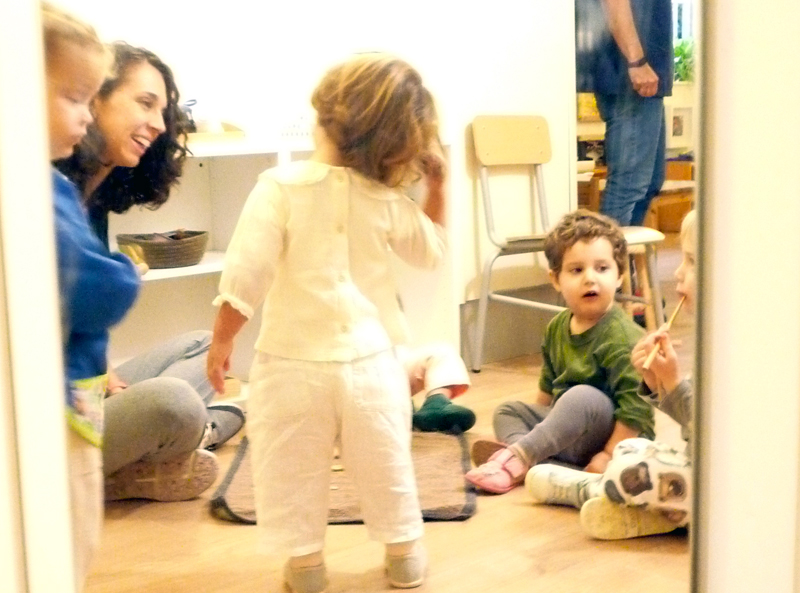
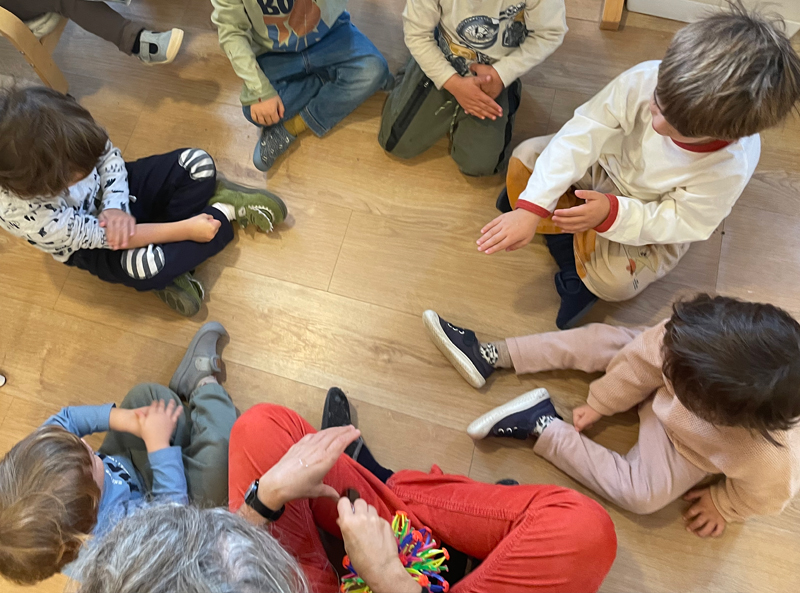
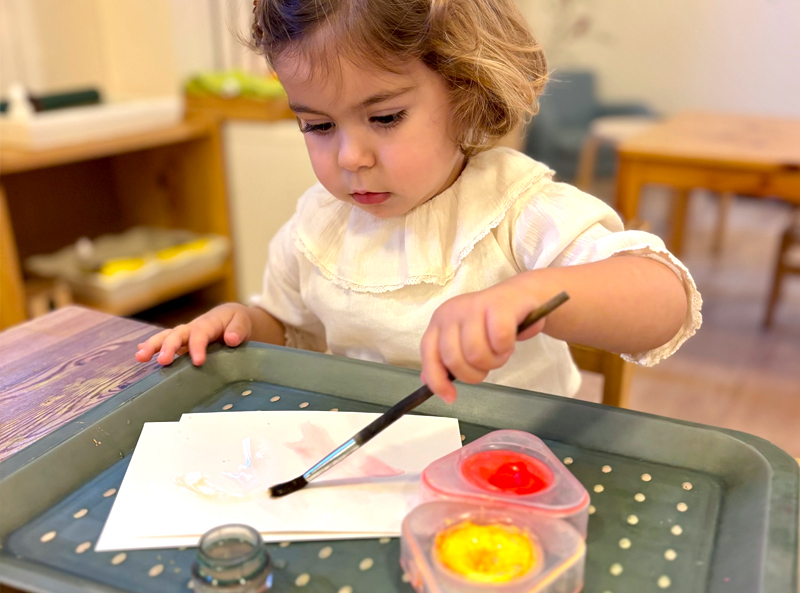
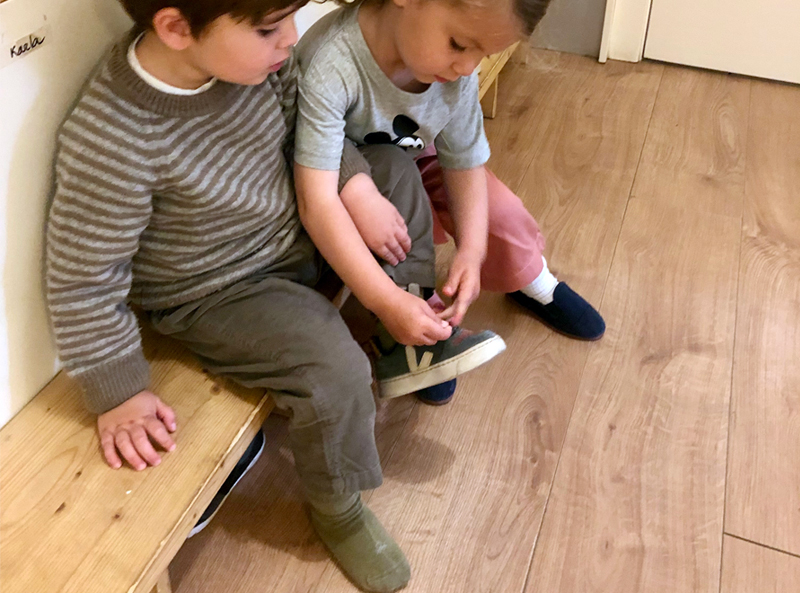
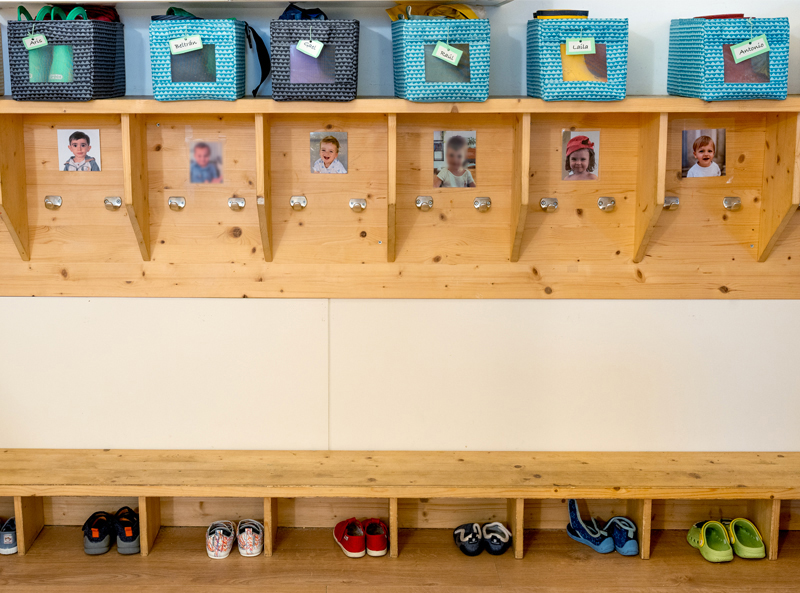
the work cycle
Between 9:00 and 11:00, children can freely choose between the four areas of the program: Language, Art, Manipulative Materials, and Practical Life Exercises, which includes food preparation. This period flows between independent activities, individual lessons, and small group meetings coordinated by the Guides. These groups can be dedicated to a specific activity, but can also be spontaneous gatherings to sing, move, play musical instruments, tell stories, or participate in language games.
At 10:45, the children are invited to begin putting their work away and gather in a group. This moment serves as a transition before going out to play in the playground. Throughout the morning, and before going out to the playground, the Guides invite the children to go to the bathroom if they need to. If so, they accompany them with the intention of offering support as they gain autonomy with their routines, including their participation in changing clothes.
patio and lunch
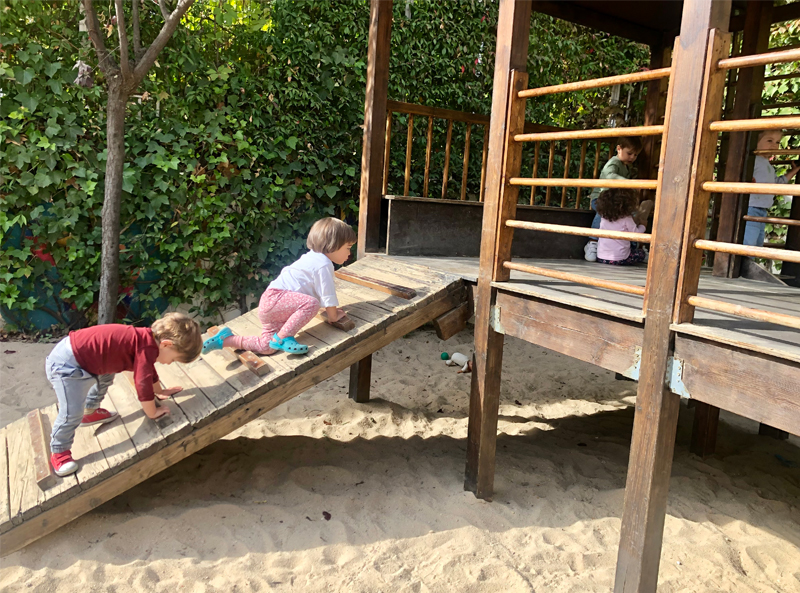
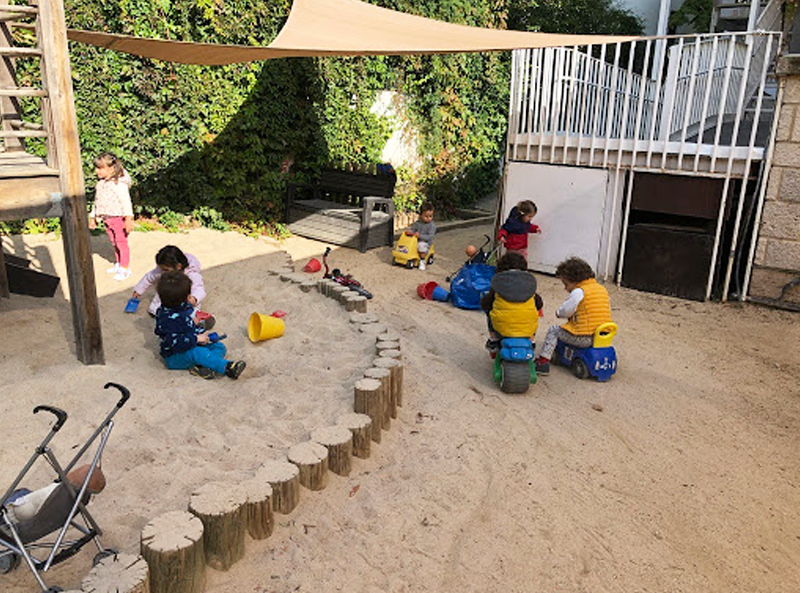
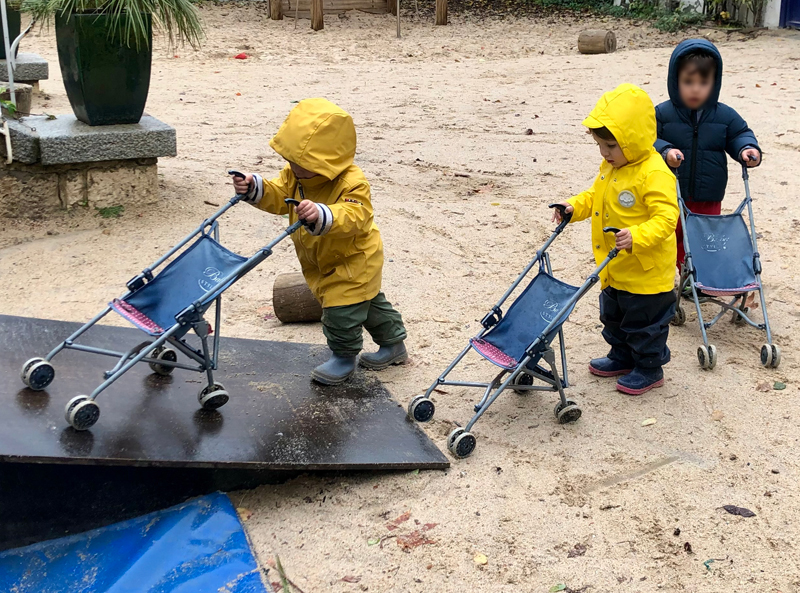
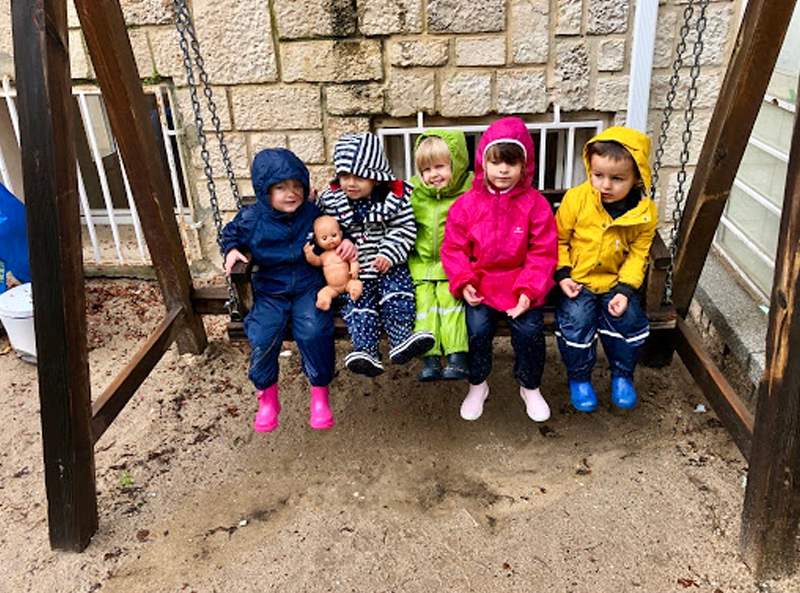
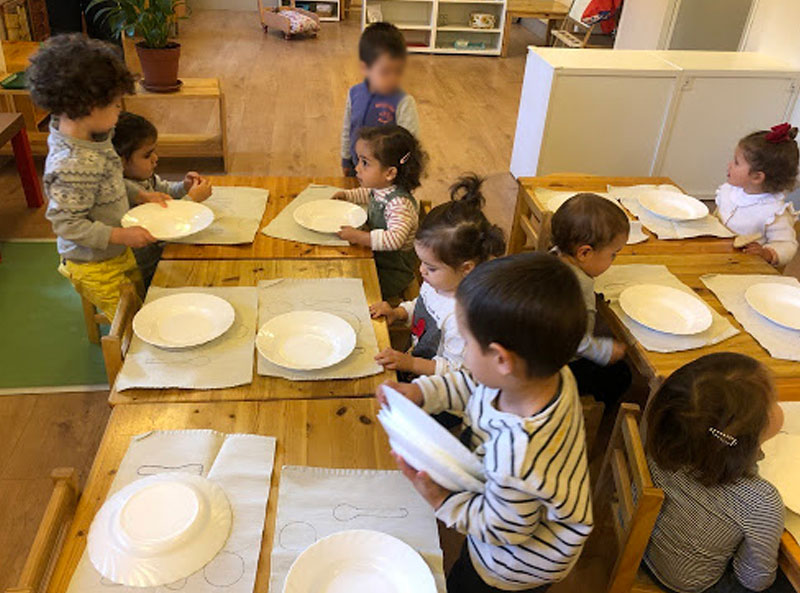
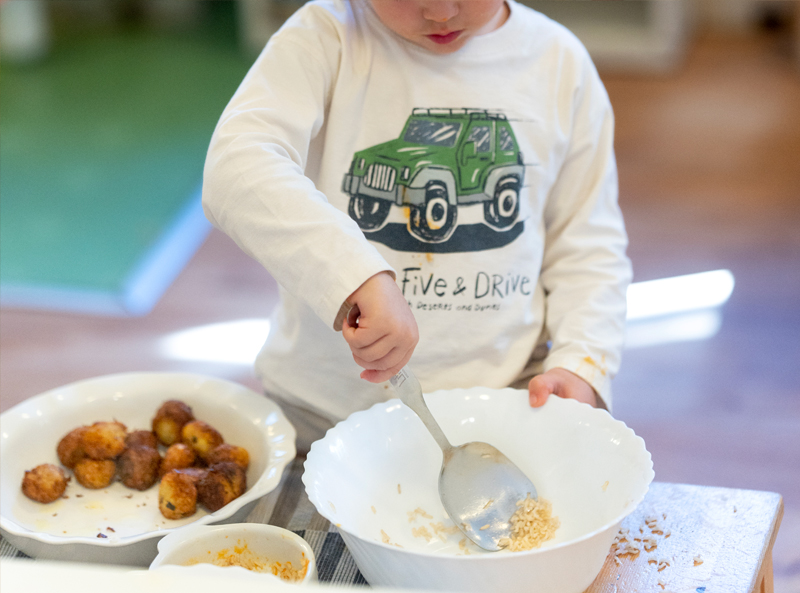
extended day program
We have a limited number of spots for some children to nap at school from 1:00 PM to 3:00 PM, Monday through Thursday. Pickup in this case would be at 3:30 PM. On Fridays, all children go home at 1:00 PM.
